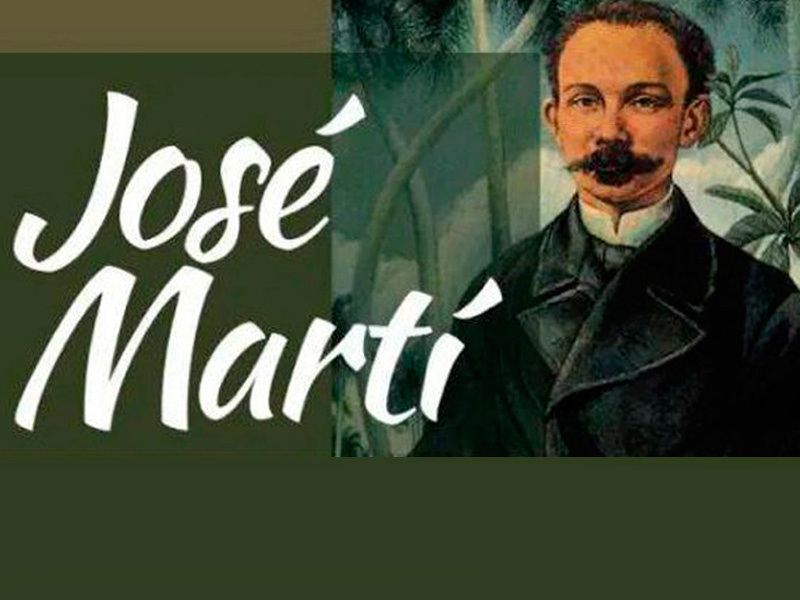Jose (Papo) Coss
“The only truth is love. Patriotism and friendship are nothing but love.” José Martí.
Those who support dogmatic religions that claim to hold the truth and atheists who proclaim the non-existence of God lose sight of the most essential thing: that the human being has two dimensions, the material and the spiritual.
Asked about this subject the Apostle of Cuba, José Martí (1853-1895), a clairvoyant and spiritual leader beyond his political exploits and his excellent poetry, said in 1887 for the newspaper La Nación of Buenos Aires: “To deny the spiritual, which pains and shines, which guides and consoles, which heals or kills, is like denying that the sun gives light, or that a father is moved by the glory of a son; so it is to deny that, the scorched desert as in the Scottish cathedral, the virtues and evils of man are equal”.
At that time Marti was the forerunner of what he called the spiritual elevation of man through service to others. On the existence of God he wrote in one of his most emblematic reflections, although less widespread in Cuba and the world: “God exists, however, in the idea of good, which watches over the birth of every being, and leaves in the soul that is incarnated in him a pure tear. The good is God. The tear is the source of eternal feeling”. (The Political Prison in Cuba, Madrid, 1871.)
These two dimensions, material and spiritual, are interdependent and there must be a balance between them, to reach the fullness of this composite human being. This is a clear vision that acquires greater significance in our times, in the face of the temporary triumph of greed as a model of life for the neoliberal system and big capital.
For Martí it is through sacrifice for the happiness of others that love will overcome hatred and selfishness, which are the greatest enemies of humanity.
That is why he offered his life on May 19, 1895 in Dos Ríos, in his first battle against the Spanish army and died of three bullets, facing the sun as he predicted in one of his famous poems.
This is a man who, in the early hours of the morning in the middle of the war, would quietly get up to cure the enemy soldiers.
A being who – as the Cuban and Puerto Rican tobacco farmers of Tampa and Key West used to say – inspired and amazed everyone who heard him with his essentially spiritual words: “I don’t understand what the master said but I would give my life for him right now”; “man is not what you see, he is what you don’t see,” the workers repeated after listening to his speeches in many cities of the United States and Latin America.
For them José Martí was a saint, a spiritual guide beyond the delegate of the Cuban revolutionary committee or the future president of a free and sovereign nation.
His foster daughter María Mantilla tells us that the Apostle of Cuba hardly slept, that he wrote as if in a trance and that afterwards he did not understand what he had written. So he would call her and ask her to decipher his scribbles. She was the only one who could clarify his writings.
As we recently celebrated the crucifixion and resurrection of the man who was José Martí’s role model, we also think that love is the only truth. When we discover that spiritual essence that gives meaning to our lives, we will walk together on the road to political freedom and social justice.
Adendum:
There is no doubt that Fidel Castro has been, in Cuban history and in our America, the most outstanding student of the Apostle and National Hero of Cuba, José Martí.
From the initial days of the struggle, Martí’s thought nurtured the consciousness of the then young revolutionary, and the consciousness became actions.
Fidel expressed:
“I carry in my heart the doctrines of the Master and in my thoughts the noble ideas of all men who have fought for the freedom of the Peoples.”
“It seemed that the Apostle was going to die in the year of his centenary, that his memory would be extinguished forever, so much was the insult! But he lives, he has not died, his people are rebellious, his people are worthy, his people are faithful to his memory; There are Cubans who have fallen defending their doctrines, there are young people who in magnificent redress came to die next to his grave, to give him his blood and his life so that he continues to live in the soul of the country. Cuba, what would become of you if you had let your Apostle die! ”
“No one should worry about being accused of being the intellectual author of the Revolution, because the only intellectual author of the assault on Moncada is José Martí, the Apostle of our independence.”
Martí always lived with the transcendent as the objective of his existence and ready to sacrifice himself to offer his life for others.
For his intrinsic spirituality, death was never feared or rejected, and in one of his verses, he referred to it with simplicity and unparalleled beauty:
“I want to leave the world // Through the natural door: // In a car with green leaves // They will take me to die”.
His deep and very significant spiritual life was characteristic for him throughout his fruitful existence.
His detachment from the merely personal and petty, as well as his humanistic conception shaped the sense of his patriotism, which he expressed with the very significant concept that the Cuban Health Brigades are raising around the world today, to fight against the covid-19 pandemic: “Homeland is Humanity”.




